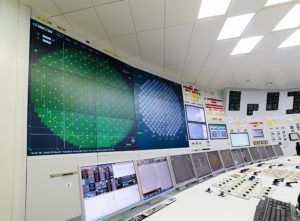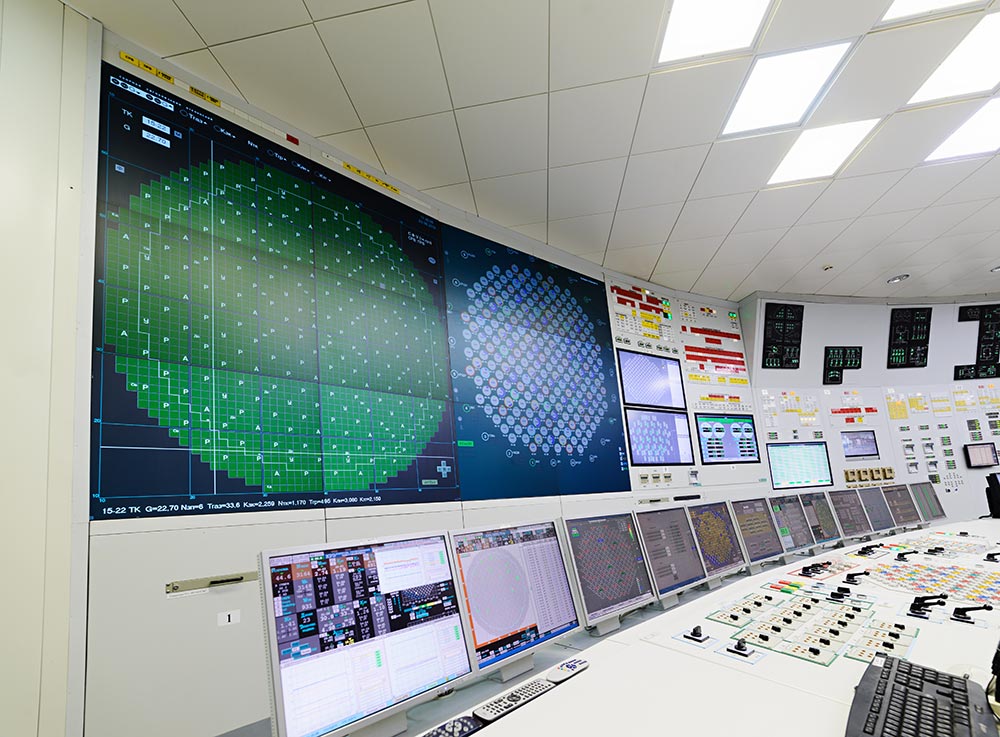Disclaimer: The information on our website is provided for general information purposes only. We make no representations or warranties of any kind, express or implied, about the completeness, accuracy, reliability, suitability or availability with respect to the website or the information contained on our website for any purpose. Any reliance on such information is therefore strictly at your own risk and we are not liable for any damages or losses arising out of or resulting from your reliance on any information contained on our website.
Nuclear power reactor operators have the responsibility to control nuclear reactors. This means that along with operating the equipment necessary to control the reactors, they must monitor their equipment to ensure the safety of those inside and near their facility are safe. They would also set in motion emergency procedures if necessary. When continuing with your research on job boards, additional job titles can include the words control operator, plant operator, nuclear station operator, nuclear supervising operator, and nuclear unit operator.
Watch a video to learn what a nuclear power reactor operator does:
How to Become a Nuclear Power Reactor Operator

The minimum education needed to start your journey towards becoming a nuclear power reactor operator is a high school diploma. From there though, you would gain extensive on-the-job training. To land a position at a power plant to gain the experience necessary, you’ll likely need to accomplish a drug and background check. Some employers may also require you to take an aptitude test which is called the Power Plant Maintenance and Plant Operator exam.
You will work several years at a power plant working your way from being an equipment operator to helping those more experienced maintain equipment in order to learn the skills needed to operate a power plant. Once you gain the training and experience to be qualified to apply for a nuclear power reactor operator position, you’ll need to pass a licensure exam from the U.S. Nuclear Regulatory Commission in order to be authorized to control the equipment to operate a nuclear power plant.
Of those nuclear power reactor operators surveyed by O*NET OnLine, 50% reported having a high school diploma, 16% held a certification, and 15% had earned their bachelor’s degree.
Job Description of a Nuclear Power Reactor Operator
Nuclear power reactor operators safely operate the nuclear reactors at a power plant. They do this by monitoring equipment, ensuring maintenance is conducted regularly, and following proper policies and procedures. They must be observant at all times in order to adjust the controls as appropriate and monitor radiation levels, coolant temperatures, and rate of power flow to name a few. If they detect an abnormality, they must swiftly determine the cause and take the proper actions. This may even include implementing emergency procedures depending on the issue at hand.
Nuclear Power Reactor Operator Career Video Transcript
From individual home furnaces to the bright lights of the big city, keeping homes and businesses powered-up takes round-the-clock operations at power plants. Whether from coal, gas, nuclear energy, wind, or solar sources, power plant operators, distributors, and dispatchers control the systems that provide electric power. Nuclear power reactor operators control nuclear reactors. They monitor reactor equipment and systems, adjusting controls as needed.
Operators may need to respond to abnormalities, determine the causes, and fix the issue. They must be licensed by the U.S. Nuclear Regulatory Commission. Power plant operators oversee machinery to generate electricity, and keep the system in balance and under control. They monitor instruments to maintain voltage and electricity flows from the plant to meet consumers’ fluctuating demand for electricity. Power distributors and dispatchers control the flow of electricity traveling from generating stations to substations and to users. They reroute electrical currents around areas that need maintenance or repair, and prevent further damage during emergency outages.
Many of these workers operate in highly secure environments, and give their full attention to monitoring controls during their shift… occasionally walking rounds to check equipment. Work schedules are often rotating 8- or 12-hour shifts, which can be wearing as living and sleeping patterns change frequently. While job requirements may vary from a high school diploma to a bachelor’s degree, these jobs all require extensive on-the-job training. Candidates must pass background checks, as well as drug and alcohol screenings. An understanding of mechanical concepts, spatial ability, and mathematical ability are necessary.
Article Citations
Bureau of Labor Statistics, U.S. Department of Labor, Occupational Outlook Handbook, Nuclear Power Reactor Operators.
National Center for O*NET Development. 51-8011.00. O*NET OnLine.
The career video is in the public domain from the U. S. Department of Labor, Employment and Training Administration.

